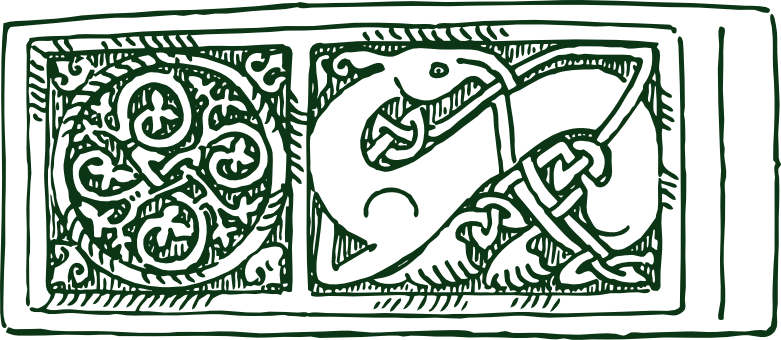Alistair Livingston
Articles by this author
|
Gaelic in Galloway: Part One – Expansion Early Mediaeval, Mediaeval, History, Ethnography TDGNHAS Series III, 85 (2011), 85(3.42 MB)
Abstract
For at least 600 years, between the tenth and the sixteenth centuries, Galloway was a Gaelic speaking land. Although both the beginning and the end of Gaelic Galloway are uncertain, that Gaelic was the language of the kingdom of Galloway established by Fergus in the early eleventh century, and was still the main language of the Douglas lordship of Galloway at its end in 1455, is indisputable. In addition to the Gaelic personal and place names recorded in medieval charters, the thousands of Gaelic place names which survived to be recorded by the Ordnance Survey in the 1840s bear witness to Galloway’s Gaelic past. Furthermore, despite the language shift to Scots, there is evidence of cultural continuity between the agriculture of Gaelic Galloway and the farming practice of seventeenth and early eighteenth century Galloway. Then, at the end of the eighteenth century, the process of agricultural improvement began, a process which has continued to the present. The cumulative effect of this process in the lowlands, combined with afforestation in the uplands, has been the erasure of Galloway’s past. The Galloway landscape known to the Galloway Levellers and the Covenanters would have been familiar to the medieval Gaelic farmers who named the land, but none would recognise the landscape of the present. |
|
Gaelic in Galloway: Part Two – Contraction History, Etymology, Ethnography, Linguistic History TDGNHAS Series III, 86 (2012), 63(4.08 MB)
Abstract
The end of Gaelic in Galloway is as obscure as its beginnings. It is likely that the survival of Gaelic was intimately bound up with the survival of a distinct Galwegian identity. The persistence of this Galwegian identity was a recurring source of conflict with Scottish kings from David I to David II. Crucially, it led Galloway’s Gaelic kindreds to support the Balliols against the Bruces in a struggle for the Scottish crown which lasted from 1286 to 1356, when David II prevailed over Edward Balliol. Even then, it was not until after Archibald Douglas established his lordship of Galloway in 1372 that the power of the Galwegian kindreds was diminished through the plantation of Scots speakers in Galloway. Under the Douglases, Scots began to displace Gaelic as the language of Galloway. By the end of Douglas rule in 1455, the once powerful Galwegian identity had faded into insignificance and the region was peacefully absorbed into Scotland. This acceptance of Scottish identity suggests that Scots had also replaced Gaelic as the language of Galloway. |
|
The Glenkens, Cattle, Cotton and Capitalism History, Agriculture, Industrial Archaeology, Manufacturing (Textiles), Biography TDGNHAS Series III, 90 (2016), 67(2.1 MB)
Abstract
Lit by gaslight and powered by steam, by 1815 the cotton-spinning mills of Ancoats in Manchester represented technology at the leading edge of the industrial revolution. Side by side on the Rochdale canal, two huge cotton-spinning factories dominated Ancoats, each employing over 1000 workers (Kidd, 1993, p.24). Remarkably, the founders of these two mill complexes, partners John Kennedy (1769–1855) and James McConnel (1762– 1831), and brothers Adam (1767–1818) and George Murray (1761–1855), all came from Kells parish in the Glenkens district of Galloway. The industrial revolution, which transformed Britain between the 1780s and 1830s, drew many thousands of people from similar rural backgrounds into fast-growing towns and cities. Very few, however, were able to succeed and prosper by mastering the technological and economic challenges of these new environments. Why were the Glenkens group able to do so? To answer this question requires an understanding of the social and economic background from which they emerged. A key argument will be that the development of the cattle trade with England led to the early advent of capitalist farming in Galloway. By the later eighteenth century, the social and economic environment of Galloway had been shaped by market forces for the best part of a century. Although this was a form of agricultural rather than industrial capitalism, it meant that when Kennedy, McConnell and the Murray brothers began their businesses in Manchester, the marketplace was a familiar rather than alien environment. |
|
Reassessing the Galloway Levellers Recent (Social), History, Agriculture TDGNHAS Series III, 92 (2018), 37(2.11 MB) |
